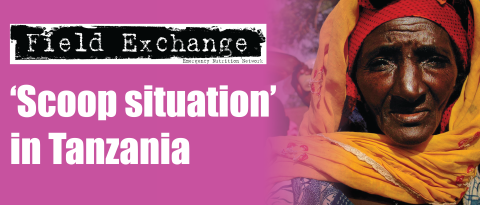Real time evaluation of Pakistan Flood Response
Summary of evaluation1
The Pakistan floods of 2007 devastated large swathes of rural Sindh and Balochistan Provinces in southern Pakistan, destroying homes, crops and roads, and caused the temporary displacement of over 2.5 million people. The Government of Pakistan (GoP), through its newly created National Disaster Management Authority (NDMA) and with the help of the Army, launched a major relief operation. The United Nations (UN), with other members of the international humanitarian community and local nongovernmental organisations (NGOs), mobilised resources to help. The decision was taken by the Inter Agency Standing Committee Country Team (IASC CT)2 to launch a full-scale humanitarian response. An application was made to the Central Emergency Response Fund (CERF). Clusters were set up and started work, a joint rapid assessment was carried out with NDMA, and a Flash Appeal was announced and promoted.
For a variety of reasons, the GoP did not fully support the IASC CTs decision and approach. In addition, the assessment was delayed, the Flash Appeal was issued three weeks after the onset of the emergency and raised only 26%3 of its target, and the Clusters failed to achieve their full potential as coordinating mechanisms. As a result and despite substantial efforts, the humanitarian community did not succeed - to the extent it considered appropriate - in delivering humanitarian relief to the already-impoverished people of Sindh and Balochistan. A Real Time Evaluation (RTE) was set up over a two week period, staffed and operating independently of the UN, to help understand the reasons and suggest improvements for the future.
The main findings of the evaluation go some way to explaining the disappointing overall response and include:
- When the floods struck, the UN reforms (being piloted in Pakistan), the Humanitarian Response reforms, and the NDMA set up were all still in their transition phases. They needed more time to take root and for all parties to understand new mandates, roles and modes of operating.
- There were huge expectations within the UN that the success of its own Pakistan earthquake operation, mounted jointly with the GoP and fully supported by the international humanitarian community, could be repeated. However the contexts were very different and expectations were disappointed.
- Balochistan, in particular, is a highly politically sensitive part of Pakistan, and there have been restrictions on access for non-Pakistan nationals for some time on safety grounds.
- The GoP, and specifically the NDMA, was uneasy about launching a full scale international humanitarian response, including the Flash Appeal.
- The UN did not really grasp the implications of this GoP unease. Decisions were made by the IASC CT (to establish 12 Clusters, for example) with the best of intentions that, with hindsight, were over-ambitious and over-complex in all the circumstances.
- Lessons from the 2005 Pakistan earthquake, particularly in relation to the operation of the Clusters, had not been learned or implemented, and many of the issues that were identified in the earthquake RTE re-emerged this time.
Main recommendations of the RTE may be summarised as follows:
- The UN, the GoP and indeed the international humanitarian community as a whole, must continue to invest in the new structures so that they achieve their objectives. Greater efforts must be made to understand each others' mandates, roles and operating procedures and develop a real sense of partnership in working towards common humanitarian goals.
- Common assessment tools, an effective management information strategy and systems, and shared operating procedures, contingency plans, standards and principles are needed.
- The Resident Coordinator/Humanitarian Coordinator (RC/HC) needs, in some circumstances, a special budget for immediate emergency response, or fast-track access to the CERF. Also, the capacity for a 'quick Flash Appeal', followed by a later full assessment-based appeal update, could achieve greater response from donors while media attention is still focused on the emergency.
- The RC/HC role is extremely testing, and the management and decision-making structures at country level are labyrinthine, particularly during a humanitarian response. A constructive development would be the separation of both roles by appointing a HC, as deputy to the RC, with Disaster Management (DM) and leadership skills and experience. The RC should be empowered during the period of the response to exercise overriding authority over the country heads in exceptional circumstances, and if necessary for the purposes of the response.
- The decision-making structures should be simplified by creating a senior level Disaster Management Team (DMT) jointly with the GoP/NDMA and representative(s) of other agencies as appropriate. The DMT should be empowered to make all the key strategic response decisions quickly and effectively.
- The Office for Coordination of Humanitarian Assistance (OCHA) needs to be adequately and quickly resourced for a humanitarian response in country, if it is to do its job effectively. The general view is that this was not the case in Pakistan.
- The lessons of the 2006 earthquake RTE particularly relating to clusters, and reinforced by the floods RTE, should be learnt and implemented.
The issue at the heart of the findings from the RTE relates to the role of the UN in a sovereign state with a strong government, and a humanitarian crisis to which the humanitarian community feels impelled to respond, but where the government does not wish to seek or receive international assistance at the level which the humanitarian community believes is appropriate.
This fundamental issue is a delicate and sensitive one and raises essential issues of international law in a situation where passions run deep on both sides of the argument. One person's imperative can easily become another's imperialism. Careful negotiation and discussion are required as well as patient advocacy based on good quality information.
1IASC Inter-agency real time evaluation of the Pakistan floods/cyclone - October 2007. FINAL Version: 31st October 2007
2Inter Agency Standing Committee. See http://www.humanitarianreform.org
3Correct on 30th September 2007
Imported from FEX website


